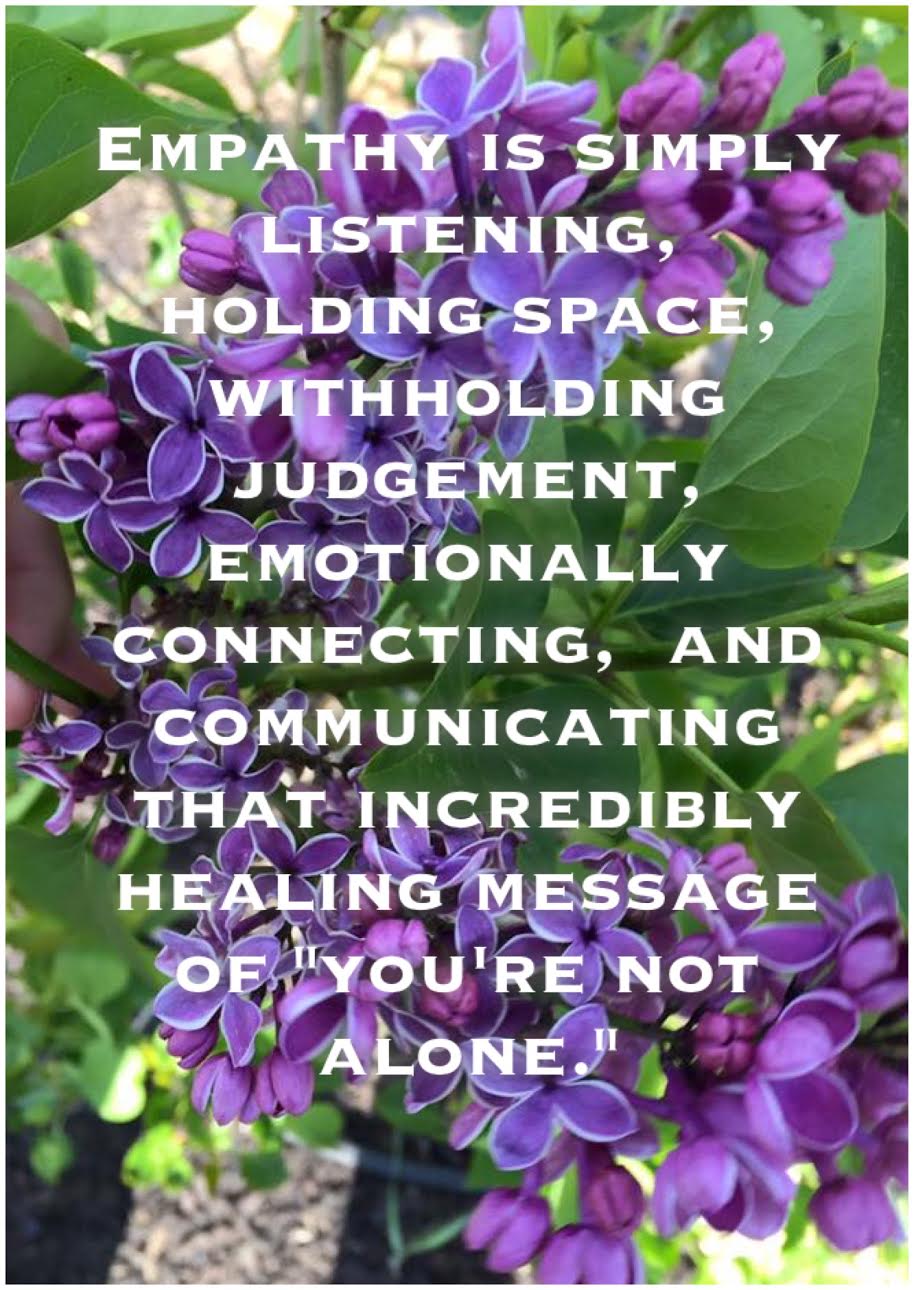She showed up first. We were little more than acquaintances at the time. She knew of Lach’s death and she came. She had such a way about her that things seemed better when she was there. She stayed in the background but relieved me of the pressure of having to tend to people. She let people in, she answered the phone, she made coffee, and she gave us a ride to the hospital. We had been away from home for a week or two during the time of Lach’s funeral and burial. She called and asked if it would be ok to clean the house for us. As we were returning home, I couldn’t help but be a little anxious about this new normal that we were going to have to find, and that we were going to have to start back into the daily chores of living. It lightened my heart to find things cleaned and tidy. Lach’s room was untouched, his things as we left them, the fingerprints still on the mirror. There was a vase of fresh cut lilacs on the table, fresh fruit and a new gallon of milk in the fridge. Maybe it’s because she was the first one, maybe it’s because we didn’t know each other well enough that I might have expected it from her, maybe it’s because those things were outside the box of casseroles and sympathy cards, but those were some of my most memorable moments of empathy. Since then, we have grown to be good friends and she has continued to be a wonderful support for me along the way.
Empathy is as unique as the individual who is giving it. I think they key is just to do something! You don’t have to know the person well to give an incredibly kind and meaningful gesture, even if it is small and simple. Many people out of true love and concern make themselves available, “Call if you need anything. I’m here for you.” Even on the hardest days, I would let the dishes and the laundry pile up before I would ever call someone and ask them to do those things for me. People bring casseroles. They know you’ll have company that needs to eat even if you can’t. Those things are certainly appreciated, but the things that stood out to me were the things that were outside that box. Having someone take care of mowing the lawn, offering to take Westin for a couple hours, getting a group together to help us create a memorial garden for Lachlan, help in creating the memorials, Lach’s Legacy, and the Run for Their Lives, and even simply a coffee date and a loving conversation or a walk around the neighborhood.
Here are my tips on offering empathy to a newly bereaved parent:
1. Know that there is more going on than what you can see. From the outside, I may have appeared to be holding myself together. I may have been playing with Westin at the park, I may have been talking about my trip to the grocery store, I may have been working just like everyone else. But what was on the inside was something different. I was being eaten up inside that I could give Westin undivided attention without Lachlan there, that the grocery trip was too easy when you’re not wrestling a 10 month old while you do it, or that I could work without a baby in my arms.
2. Ask. Coming into a conversation with a newly bereaved parent can sometimes be scary. We are unsure of what to say or how to say it, we are afraid we might say something that will be hurtful. Keep in mind that grief is as unique as a thumbprint. There are some common threads, but no two people will look at any part of it the same way. What might bring comfort for one griever, may be painful for the next. Don’t expect to know what they might People who could come to me with an open mind and an open heart were always a blessing.
It was a relief to be able to talk about Lachlan without feeling judged or worrying about falling short of expectations, or feeling like I wasn’t doing it right because I wasn’t doing it as they thought I should. It was healing for me to have a conversation with someone who was willing to ask and ready to hear.
The questions you could ask to show your empathy and your love are endless: Are you able to eat? Are you able to sleep? What are some of the things that have brought you the most comfort? Is there anything in particular that has been hard for you lately? Have you thought about any kind of memorial? How are you feeling about going back to work? Are you finding it hard to take care of your other kids? Can I see some pictures of your baby? Tell me about him… Those kinds of questions helped me to know that someone cared, that they were interested in actually knowing my struggles and not giving any expectations on what I should think or feel or do. Share your own experiences of loss or grief, but remember that they are your own and what worked for you may not be helpful for them.
3. Do something. Pick out something you would like to do for them and ask for permission to do that. It was much easier to say yes to someone who said, “we would like to take care of your lawn for the next couple weeks, is that ok with you?” than to call someone to say, “my heart hurts too much today, will you mow my yard?” Remember that now every item the child has ever touched is sacred to the parents. They are the physical proofs that the child was there. Make sure to ask before helping with anything that is the baby’s. Even the unfinished bottle, the poopy diapers, and the dirty laundry. A time will come when those things will have to be addressed, but the right time to address them is different for everyone.
4. Remember. Remember birthdays and anniversaries. Remember that Thanksgiving and Christmas are happening without their child to share it with. Mother’s day is hard when you can’t hold the child who made you a mother. Remember times that you spent with the child and memories of the child. If you didn’t know the baby ask them to tell you about them. When you see something that makes you think of them, tell them that.











